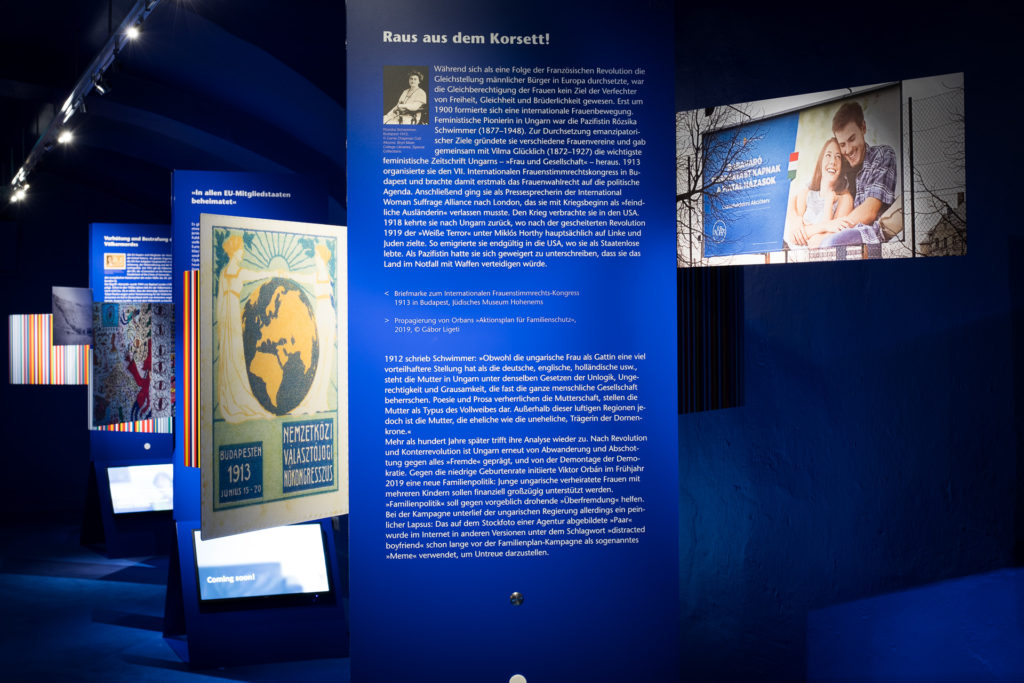
Installation Escape the Corset!. Photo: Dietmar Walser
While in the wake of the French Revolution, equality for male citizens was met in Europe with acceptance, the emancipation of women had not been among the goals of those championing liberty, equality, and fraternity. Only around 1900, an international feminist movement began to emerge.
< Stamp on the occasion of the 1913 Conference of the International Woman Suffrage Alliance in Budapest, © Jewish Museum Hohenems > Promotion of Orbán’s “family protection action plan,” 2019, © Gábor Ligeti
In 1912, Schwimmer wrote: “Although as wife, the Hungarian woman is in a much more advantageous position than the German, English, Dutch, etc., the mother in Hungary is subjected to the same laws of illogic, injustice, and cruelty that govern almost all of human society. Poetry and prose exalt motherhood, depict her as a type of earth mother. Yet, outside of these lofty regions, the mother, married or unmarried, is the carrier of the crown of thorns.” More than one hundred years later, her analysis is once again applicable. Following revolution and counterrevolution, Hungary is once more characterized by emigration and sealing-off against anything “alien” as well as by the dismantlement of democracy. In the spring of 2019, Viktor Orbán initiated a new family policy to combat the low birthrate: young Hungarian married women with several children would receive generous financial support. “Family policy” is intended to ward off the supposedly impending Überfremdung (excessive influx of foreigners). However, in the course of the campaign, the government had committed an embarrassing blunder: already long before this family-planning campaign, the “couple” depicted on an agency’s stock photograph had been circulating the internet in other versions under the slogan “distracted boyfriend” as a so-called “meme” to illustrate infidelity.
Andrea Petö (Vienna) about women’s rights, gender studies and Corona:
